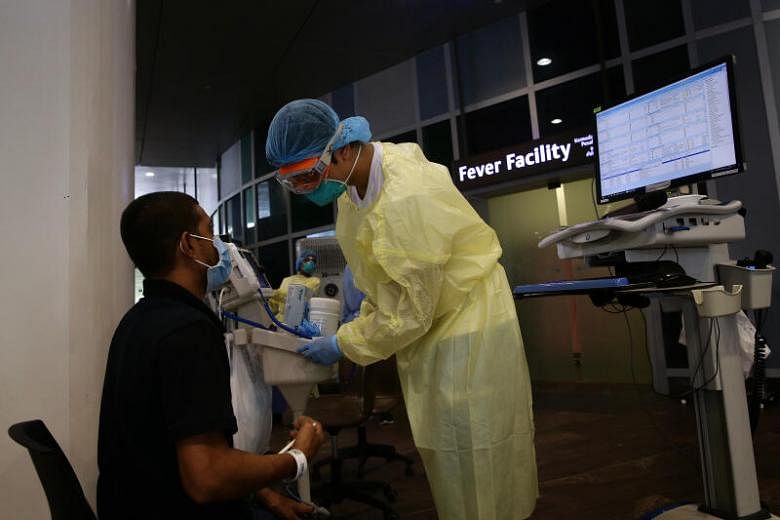SINGAPORE - Even after battling Covid-19, patients who have seemingly recovered need to cross a final hurdle - to be tested negative for the virus twice over a period of 24 hours - before they can be discharged.
Those who fail these tests might end up staying on in hospital for additional weeks on end.
While it is possible that these patients may be shedding "dead" viral fragments, polymerase chain reaction tests, which detect genetic sequences specific to Covid-19 and are widely used in Singapore, are unable to distinguish between "live" and "dead" viral fragments.
This precaution of testing negative twice, which is also taken by countries like the United States, is necessary as experts still do not have conclusive evidence about whether people who continue to shed the virus for a long time remain infectious, said Associate Professor Hsu Li Yang, programme leader for infectious diseases at the National University of Singapore's Saw Swee Hock School of Public Health.
"The kinetics of virus shedding is still being understood, but testing negative twice over a time interval ensures that a productive infection is not ongoing," Associate Professor Richard J. Sugrue, from the School of Biological Sciences at the Nanyang Technological University, told The Straits Times.
"To determine if significant levels of 'live' virus are still present in a patient would require a procedure called virus isolation. This is time-consuming, labour-intensive and therefore would not be performed during routine screening."
Professor Shiv Pillai, a medicine and health sciences and technology professor at Harvard Medical School, noted: "It is the safe thing to do. If you're negative once, there is a possibility of a false negative and this chance goes down when you are tested twice," he explained.
"In the US, if someone is tested positive but not hospitalised, they will have to self-isolate for two weeks, and then have to test negative twice before they are allowed back into the community."
But as scientists learn more about the virus, there is increasing evidence now that most Covid-19 cases are no longer infectious two weeks from the start of their illness, Prof Hsu said.
There is hope that a time-based rather than test-based discharge policy may soon be viable - something which would provide relief to the nation's healthcare system, he said.












